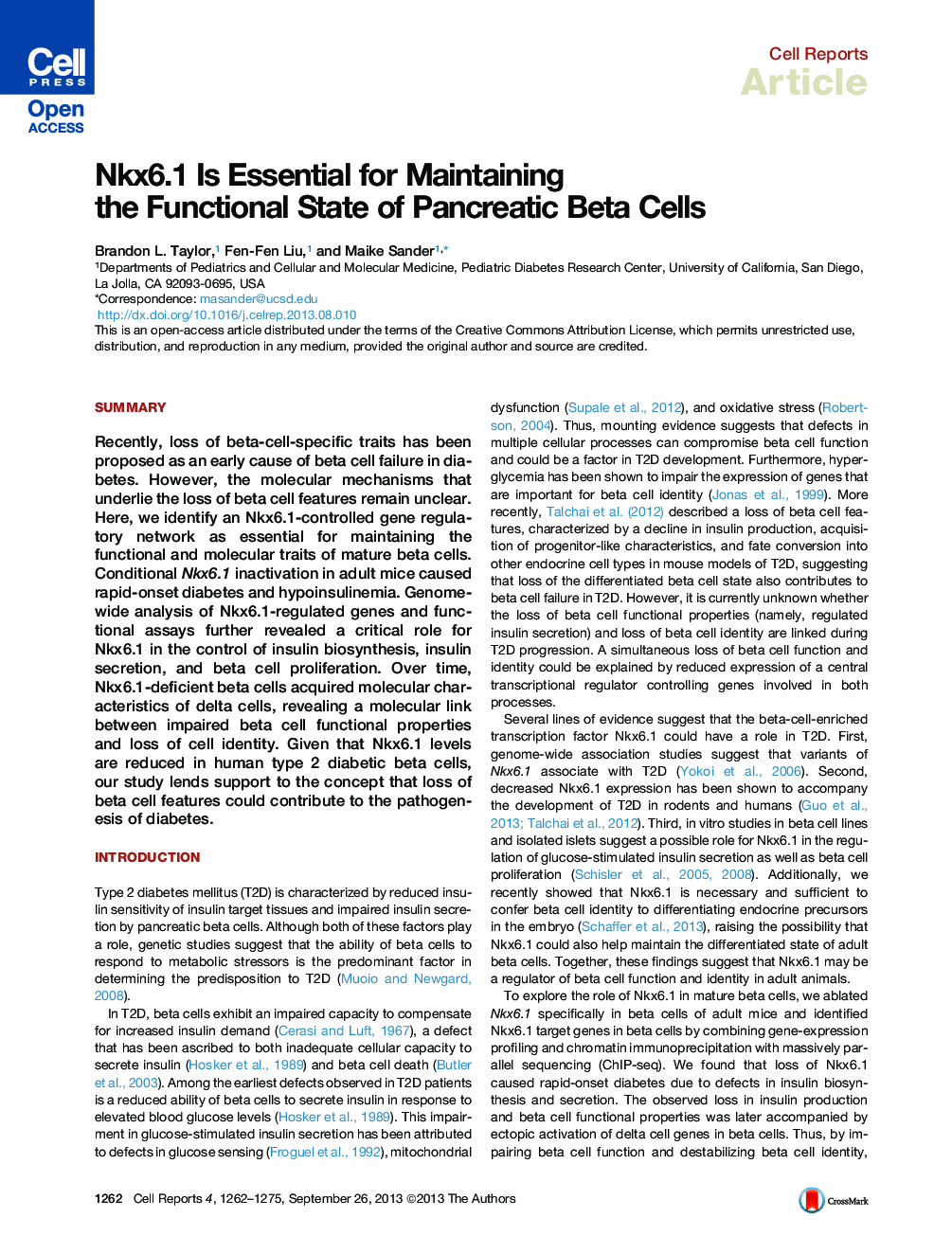| Article ID | Journal | Published Year | Pages | File Type |
|---|---|---|---|---|
| 2042023 | Cell Reports | 2013 | 14 Pages |
•Beta-cell-specific Nkx6.1 inactivation in adult mice causes diabetes•A gene network necessary for beta cell function is regulated by Nkx6.1•Nkx6.1 controls beta cell proliferation indirectly by regulating glucose import•Nkx6.1 deficiency results in gradual loss of beta cell identity with age
SummaryRecently, loss of beta-cell-specific traits has been proposed as an early cause of beta cell failure in diabetes. However, the molecular mechanisms that underlie the loss of beta cell features remain unclear. Here, we identify an Nkx6.1-controlled gene regulatory network as essential for maintaining the functional and molecular traits of mature beta cells. Conditional Nkx6.1 inactivation in adult mice caused rapid-onset diabetes and hypoinsulinemia. Genome-wide analysis of Nkx6.1-regulated genes and functional assays further revealed a critical role for Nkx6.1 in the control of insulin biosynthesis, insulin secretion, and beta cell proliferation. Over time, Nkx6.1-deficient beta cells acquired molecular characteristics of delta cells, revealing a molecular link between impaired beta cell functional properties and loss of cell identity. Given that Nkx6.1 levels are reduced in human type 2 diabetic beta cells, our study lends support to the concept that loss of beta cell features could contribute to the pathogenesis of diabetes.
Graphical AbstractFigure optionsDownload full-size imageDownload as PowerPoint slide
